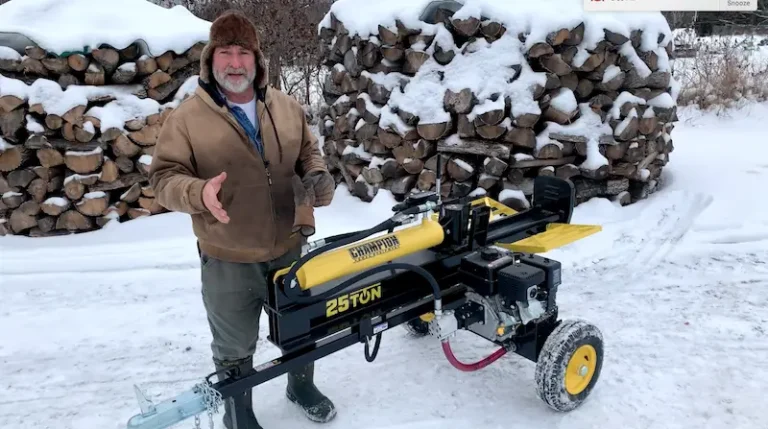
Homeownership means something different to everyone. For some, it’s the cozy charm of a cabin tucked away in the trees. For others, it’s a sleek, modern bungalow in the heart of the city. But let’s be real, cities are getting crowded. Places that used to feel calm and full of possibility are starting to feel more like buzzing beehives. And honestly? It’s no surprise that more people crave a slower pace.
Yes, there’s community in the city, but sometimes it’s too much community. Constant noise, packed sidewalks, and that feeling that you’re constantly bumping elbows with someone, even in your own headspace.
That’s where the appeal of rural life kicks in. 21% of Americans who plan to move would choose a rural place. Open space, quiet mornings, fewer people – it sounds like the dream, especially when you scroll past those idyllic Instagram shots of farmhouse sinks and misty fields. But country living isn’t just a filtered fantasy. If you’re thinking about trading city lights for starry nights, there are a few things you’ll want to know first.
Rural vs. Urban Living: What Sets Them Apart?
At the core, the most significant difference between country and city homes comes down to location, location, location. Out in the countryside, you’ve got wide-open spaces, peace and quiet, and probably a lot more trees than neighbors. Rural living usually means more space for your money, but you might have to invest more upfront in things like setting up utilities or maintaining a larger piece of land.
1. Cost of Living: It’s Not Just About Cheaper Homes
Sure, buying a house in the country is usually more affordable than in the city. You often get more land and square footage for your money. And yes, things like property taxes and even groceries might cost a little less. Sounds like a win, right?
But here’s the other side of the coin: rural homes often come with hidden costs. Think higher heating bills, well water maintenance, or the price of keeping a septic system in good shape. And if you plan to have a long gravel driveway or acres of lawn, you need to think about maintenance. If you do not want to hire a service to do that for you, you will need a lot of equipment. Make sure to factor in the bigger picture.
2. Limited Amenities: Fewer Choices, More Planning
In small towns, things just run… differently. You might have one grocery store in town (if that), and the closest big store could be a long drive away. Restaurants, shops, and entertainment (even things you consider city basics like dry cleaners or gyms) can be few and far between. If you have kids and you need to drive them to school or soccer practice, it can be challenging. And youll end up spending a whole day in your car, the very thing you wanted to avoid when moving to the country.
3. Jobs and Commutes
While it’s true that the cost of living might drop, job opportunities often shrink with the population. Unless you’re bringing your job with you (remote work), you might face a long commute or a limited job market. That doesn’t mean it’s impossible and plenty of people make it work, but it’s something to plan for realistically.
4. Self-Sufficiency Becomes a Superpower
Living in the country means figuring out more things on your own. That might mean fixing a leaky pipe, cutting down a tree, maintaining your own well, or learning how to change a tire because there’s no roadside assistance for 30 miles.
Public transportation is usually nonexistent, so a reliable vehicle is non-negotiable. And if you’re into gardening, raising chickens, or just want to try your hand at DIY home projects, country living is a great place to dive in. But know this: rural life rewards people who are resourceful and
5. You Don’t Have to Go Far to Find Your Balance
It’s easy to overlook, but rural life doesn’t always mean disappearing into the middle of nowhere. Take Texas, for example – cities like Dallas, Fort Worth, and Austin are surrounded by smaller towns, open countryside, and wild nature that offer a real change of pace, without putting you hours away from the conveniences of urban life. You can have space, quiet, and a slower rhythm, all without losing access to major hubs.
But, before jumping into something big, like googling “quick home sale Fort Worth”, it’s worth taking a step back to consider what you actually want day-to-day. Do you want to stay close to city amenities, or are you ready for more distance and a different lifestyle?
If you’re not ready to go full rural just yet, a middle ground is becoming more popular – the “donut” zone. That’s the ring of suburbs and small communities just outside city limits. Thanks to remote work and shifting priorities, more people are settling in these areas, where they can get extra space and breathing room without cutting ties to the city completely. It’s a smart step if you’re testing the waters of country life.
Final Thoughts
Moving to the country can absolutely be a dream come true, but like any big life change, it comes with trade-offs. With the right mindset, a little prep work, and a willingness to embrace a new way of life, it can also be one of the most rewarding decisions you ever make.












